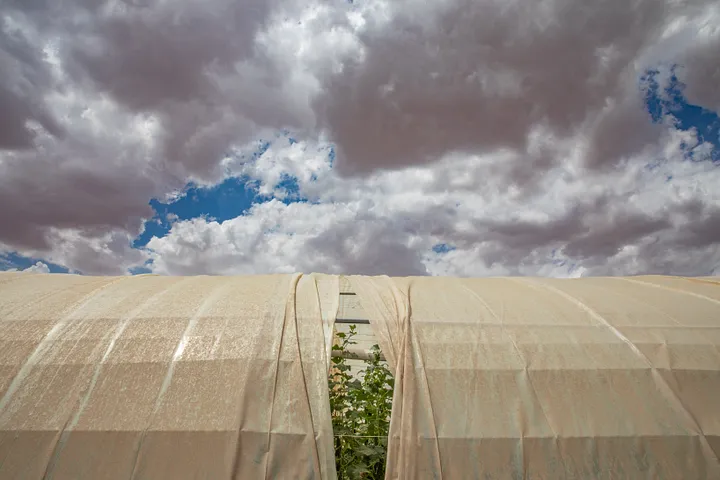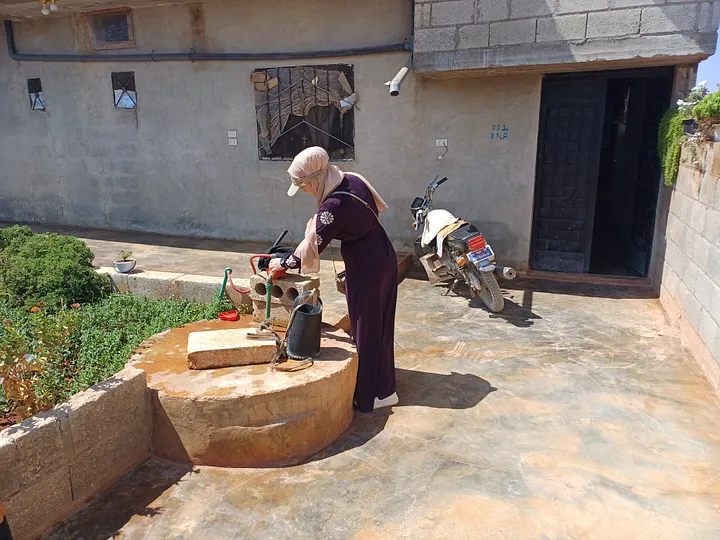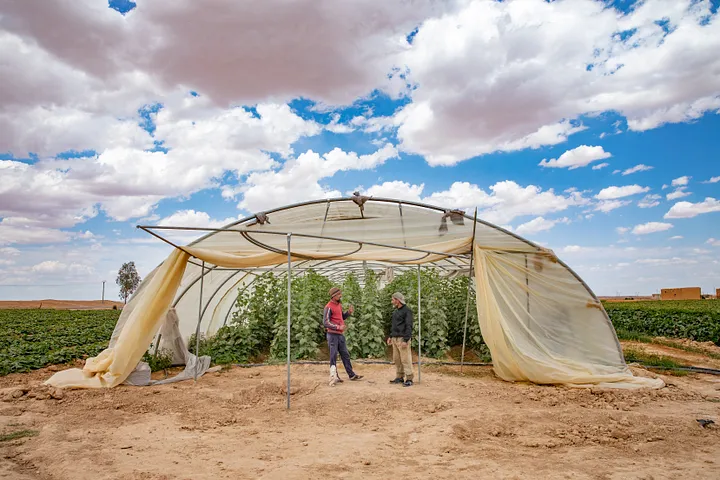Pilot Launch | HesabPay - Boosting financial access: Stablecoin aid payments to strengthen agricultural livelihoods in Northeast Syria
© Ezra Millstein/Mercy Corps. 2023, Syria
In brief:
Since 2011, Syria has been embroiled in a civil war, which has cut the country off from the international financial system
Despite a pivotal regime change in late 2024, funding humanitarian operations in Syria remains expensive and difficult
Alongside tech and NGO partners, we are launching a new stablecoin-based pilot to provide faster, safer, and more cost-effective payments to smallholder farmers and agribusinesses in Northeast Syria
© Ezra Millstein/Mercy Corps. May 2022 — Syria.
The Problem
In the conflict-affected regions of Northeast Syria, humanitarian actors struggle to deliver financial aid due to the lack of formal banking infrastructure, currency devaluation, and high transfer costs.
Since the onset of the Syrian conflict in 2011, access to financial services has eroded significantly, forcing humanitarian organizations to rely on inefficient and costly cash-based mechanisms. The continued reliance on informal money transfer agents (IMTAs), or Hawalas, creates security risks, compliance challenges, and additional fees, further reducing the efficiency of aid delivery. A liquidity crisis in late 2023 into early 2024 further exposed the fragility of the current system, emphasizing the urgent need for alternative solutions to support humanitarian efforts in the region. Despite a pivotal regime change in late 2024, Syria remains one of the most comprehensively sanctioned countries globally and has been effectively cut off from the international financial system for over a decade. While humanitarian assistance is exempt from sanctions, funding humanitarian operations in-country remains expensive and difficult.
A new Mercy Corps Ventures and Mercy Corps Syria pilot, in partnership with HesabPay and Pioneers Innovation, is set to change that by pioneering stablecoin-based payments to smallholder farmers and agribusinesses. By leveraging blockchain technology, this initiative aims to provide faster, safer, and more cost-effective financial transactions, reducing reliance on traditional cash transfer mechanisms. As a local NGO partner, Pioneers Innovation is providing critical hands-on, context-specific support to participating farmers, merchants, and staff.
© Ezra Millstein/Mercy Corps. Syria. 2022.
The Pilot
To address liquidity challenges and inefficiencies in cash transfers, Mercy Corps and HesabPay are deploying blockchain-powered cross-border payments to improve financial access for farmers and local vendors in Northeast Syria.
How it Works
Image credit: Mercy Corps Ventures
Stablecoins for Cross-Border Transfer: Mercy Corps will transfer humanitarian funds using USDC stablecoins to HesabPay’s blockchain-based “master wallet,” operated by Mercy Corps Syria.
Digital, Near-Instant Disbursement: Mercy Corps Syria will use their HesabPay dashboard to disburse funds digitally to pilot participants.
Merchant & Farmer Onboarding: Local fertilizer merchants and smallholder farmers will be onboarded to receive and transact in digital currency.
Secure Cash-Out Mechanisms: IIMTAs will facilitate the exchange of digital currency for cash when needed.
Why Stablecoins Matter for Syria
Syria’s humanitarian aid system remains heavily reliant on cash-based transfers through informal IMTA networks, leading to high costs, security risks, and regulatory challenges. This pilot will demonstrate that the use of stablecoins provides a more efficient, transparent, and scalable alternative for humanitarian actors. We anticipate the following results:
Faster Transactions: Stablecoins will enable immediate fund transfers, eliminating delays associated with traditional IMTA systems.
Disintermediation: Humanitarian transfers using stablecoins are direct from organization to recipient, which will eliminate direct transactions with third parties and exposure to de-risking.
Lower Costs: The more direct process will reduce transaction fees and overhead costs tied to extensive compliance and procurement processes and distribution of cash on site.
Enhanced Transparency: On-chain transactions will provide a fully auditable record, improving donor and regulatory compliance.
© Mercy Corps. Syria. 2023.
Learning Agenda & Key Hypotheses
1. Stablecoin transfers reduce the cost and time required for humanitarian fund distribution.
KPI 1.1: Reduction in time required to disburse funds compared to traditional cash-based methods.
KPI 1.2: Reduction in overall transaction costs compared to existing IMTAs.
KPI 1.3: Reduction in number of intermediaries in stablecoin payment flow vs. existing payment flows.
KPI 1.4: Cost savings compared to other digital voucher solutions.
KPI 1.5: Significant reduction of cost, effort and time associated with extensive compliance and procurement processes required when using conventional financial methods.
2. Stablecoin transfers improve financial access and ease of use for staff, program participants, and vendors.
KPI 2.1: Percentage of program participants who successfully receive and use stablecoins.
KPI 2.2: Percentage of vendors who accept stablecoins as payment and find the system easy to use.
KPI 2.3: Percentage of IMTAs who onboard successfully and prefer this method over existing processes.
KPI 2.4: Percentage of staff who find HesabPay easier to use than existing cash distribution methods.
3. On-chain transactions enhance compliance, boost transparency, and reduce counterparty risks.
KPI 3.1: Percentage of transactions that are fully traceable and auditable compared to traditional IMTA transactions.
KPI 3.2: Reduction in counterparty risks via a reduction in the number of intermediaries involved in transactions.
4. Stablecoin-based payments contribute to strengthening agricultural livelihoods and local markets.
KPI 4.1: Number of smallholder farmers who receive digital payments for agricultural inputs.
KPI 4.2: Volume of transactions conducted with local vendors accepting stablecoins.
KPI 4.3: Percentage of agricultural product suppliers integrating digital currency into their business operations.
© Ezra Millstein/Mercy Corps. Syria. 2022.
A Step Toward A More Inclusive Future
This pilot represents a crucial step toward greater financial inclusion and resilience in Northeast Syria. By integrating blockchain technology into humanitarian aid, this pilot could unlock a more effective and transparent way to support local economies. If successful, this initiative could set a precedent for how humanitarian organizations can leverage stablecoins to overcome financial access barriers in high-risk environments around the world.
Stay Tuned
Follow along as we test innovative digital financial solutions to empower smallholder farmers and strengthen Syria’s agricultural sector. Together with our implementation partners, we are building a foundation for long-term economic resilience.






